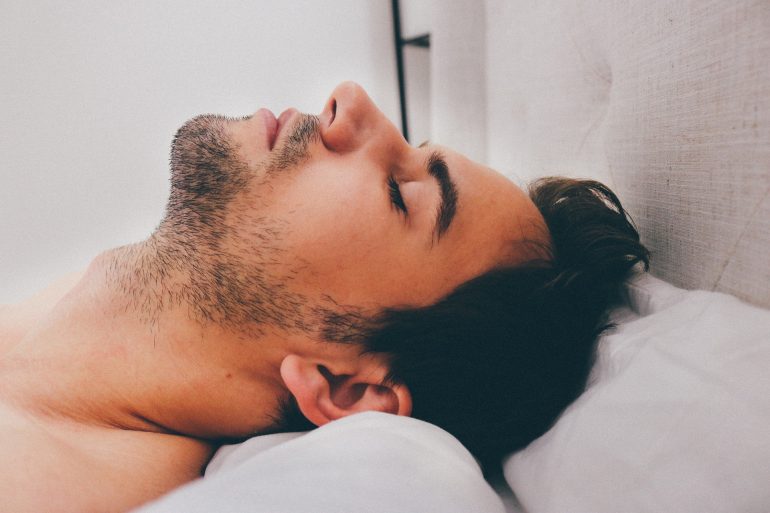The holiday season is the most anticipated period of the year, and for good reason. It is the time of the year where you get to forget about your worries and truly live in the moment. You usually can’t wait to shelve all your office tasks, financial burdens, and parent responsibilities.
The season affords you the luxury of maximum freedom. You could hang out late at parties with your friends, take trips to the countryside, and chill at the beach. Sleeping where and when you want. Even at the most expensive hotels, your back may be sore.
By the end of the holiday, your sleep schedule is already a mess. And you might even have some discomfort in your body because of your poor sleeping and excessive fun. It is time to get back to work, but your sleep pattern is a mess, affecting productivity. Now, you have a new dilemma on your hands.
Why is a sleep schedule important?
Sleeping for the recommended seven hours for an adult is not sufficient. Also, critically important is getting that sleep at a stipulated time consistently. Your overall well being depends on it, especially the heart. Having a sleep schedule helps maintain your body’s internal clock.
The body’s internal clock is a combination of nerve cells in the hypothalamus. It responds to light to determine our 24-hour cycle. Changes that occur to this pattern are known as the circadian rhythm. The circadian rhythm acts as a middleman between our internal clock and the external environment.
Exposure to light is a huge determinant of the human sleep-wake cycle. A consistent sleep schedule helps the internal clock function optimally. When you have a sleep schedule, your body automatically adjusts to this time with the help of your internal clock. It becomes easier to fall asleep and wake up quickly.
Research shows a mutual relationship between sleep and mental health. Poor sleep leads to worrying, anxiety, and eventually depression. If poor sleep patterns and sleep deprivation hamper mental health, a good sleep schedule improves mental health.
Best steps to get back your sleep schedule
The key to getting your sleep back is being able to build on positive habits that will improve sleep. Remember, it’s in the little things such as…
Open the curtains during the day
This improves your access to sunlight. Light exposure is important to your circadian rhythm. Adequate exposure to light helps your internal clock balance its sleep-wake cycle. This way, it becomes easier to function maximally during the day and gradually shut down when it’s dark.
The eyes have neurons that receive signals from sunlight and send them to the brain. This signal triggers the production of cortisol, a hormone responsible for improving mood. At dusk, the eyes also send signals to the brain to stimulate the production of melatonin. Inadequate light exposure can mess up with the circadian rhythm.
Don’t use mobile device close to bedtime
Phones emit blue light. Remember how your eyes pick up signals from light? Yes, it does the same with the blue light. This inhibits the production of melatonin at night. Using mobile phones or tablets close to bedtime could alter sleep and wake-up time. Making it more difficult to build a stable sleep schedule.
Practice relaxation techniques
Medical practitioners have used relaxation techniques to reduce stress in patients. Stress increases the number of hormones present in the body. Blood flow increases, heart pounds faster, breathing speeds up. When the stress response lasts long enough, they inhibit sleep.
The aim of relaxation technique is to get the body and mind in a state of calm. Relaxation technique focuses on increasing body awareness by fixating the mind’s attention on a thing. It is an efficient method to counter stress response. Here are popular relaxation techniques
- Yoga
- Meditation
- Deep Breathing
- Stretching
Have a cool environment
Another way to get back your sleep schedule is to improve your sleep environment. The room should be dark, quiet, and smell nice. Aromatic oils have a relaxing effect and can be very handy. A good pillow, mattress, and beddings can improve sleep. You can also try a cooling mattress for side sleepers from Nolah mattress to fit more specific sleep needs.
Exercise daily
Research shows that exercise helps people fall asleep faster and improves sleep quality. Exercise also improves mood and helps declutter the mind. At least 30 minutes of aerobic exercise a few hours before bedtime improves sleep.
Turn down the noise
As bedtime approaches, consciously look to avoid a noisy environment. Especially in your bedroom. Environmental noise produces more hormones like adrenaline and cortisol that keep you awake. In the long run, poor sleep patterns can cause weight gain, heart disease, and diabetes. It would be wise to turn off appliances, devices, and get earplugs.
Add a white noise feature
For sensitive sleepers who live in loud neighbourhoods, white noise can help regulate other sounds. White noise is a soothing sound the human ear receives at a specific amplitude. This sound serves as a blanket to shield out other noisy interference that would have otherwise woken you up. Examples of white noise features are
- Humidifier
- Fan
- Air Purifiers
- Air conditioner
- White Noise Machines
Don’t eat too late
Eating late could affect sleep negatively. Doctors advise breakfast should be the heaviest meal followed by lunch and then dinner. A study showed that dinner is best when it is had four hours before bedtime.
Practice your bedtime and wake up time daily
Seeing as the human body has an internal clock that regulates sleep patterns. It only makes sense that going to bed at a particular time will be beneficial. This will help the circadian rhythm and improve wake-up time.
Get better sleep
Getting back on a sleep schedule doesn’t have to be a hard thing once you know how to go about it. By building consistent habits, a healthier environment, and finding the right mattress, you should be back on track in no time.





